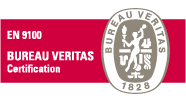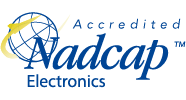The aeronautical sector includes all companies that contribute to the design, manufacture and maintenance of aeronautical equipment - aeroplanes, helicopters, drones and airships - civil and military.
The aeronautical sector includes all companies that contribute to the design, manufacture and maintenance of civil and military aircraft.
The large companies that handle the overall design of planes and helicopters as well as their assembly structure the sector.
These large groups rely mainly on a variety of subcontracting companies, whose skills range from the manufacture of simple, mechanical tools to the design and manufacture of complex components such as complete aircraft parts or complex digital systems.
Challenges for the sector
This sector is currently evolving in a context deeply marked by significant changes in environmental standards and increasing foreign influence.
It is therefore vital to implement a high level of control and to improve the competitiveness of national players in order to maintain their position.
The challenges of the global ecological transition, in particular the need to reduce greenhouse gas emissions, will lead to profound changes in the design and architecture of aircraft and helicopters. These new challenges will require major new investments in research and development on on-board energy, engine efficiency, and the structures to which these players in the industry are exposed to. They risk being replaced in their market otherwise.
The advent of new digital technologies, particularly in the field of predictive maintenance and usage data monitoring, will also develop the market for the field's various competitors.
In order to compete on a global level and to stay competitive in terms of flexibility and responsiveness, despite reduced profit margins due to increased competition, it is essential to invest in tools that enable the use of state-of-the-art, innovative and the most advanced digital technology.
Tame-Component's expertise
Aeronautics is a demanding sector requiring a high level of quality and reliability for its embedded electronics.
Tame-Component, through its EMS and laboratory experience, has developed real expertise in the reliability of electronic component and systems.
Tame-Component is recognised as a key player in the aeronautical sector thanks to its know-how in the development, design and production of electronic assemblies, as well as in their qualification. It's renowned for its problem solving ability, obsolescence management and secure storage.
Bolstered by these skills, the laboratory offers a complete range of solutions to meet the needs of every player in the sector:
- Aeronautical manufacturers
- Equipment manufacturers
- EMS
- Component manufacturers & suppliers
Certifications and accreditations
Quality has been at the heart of Tame Component’s concerns since the beginning. In a context of continuous improvement, the laboratory is well aware that certifications and accreditations have become an essential requirement to guarantee the quality of its processes. Thus, Tame-Component has developed its skills and adapted its organization to obtain the following certifications:
- Internal visual inspection: determination of internal defects of a component, according to MIL_-STD-883, METHOD 2013
- External visual inspection: determination of external defects of a component, according to MIL_-STD-883, METHOD 2009
- Bond pull-out test: Tensile stress on chip bondings, according to MIL_-STD-883, METHOD 2011
- Chip shear: force on chip bonding, per MIL_-STD-883, METHOD 2019
EN9100

EN 9100 is a European standard that incorporates the principles of ISO 9001 and addresses the entire aerospace and defence supply chain.
EN 9100 is the equivalent of AS9100 (America) and JISQ 9100 (Asia).
It certifies the reliability and quality of TRONICO's services for the design and manufacture of embedded products.
Nadcap

Tame-Component through TRONICO is Nadcap Electronics certified. This is a certification of the manufacturing process of electronic boards, developed by actors in the aerospace and defence market. Its objective is twofold: to improve quality and reduce costs. Both production sites (Saint-Philbert-de-Bouaine in France and Tangiers in Morocco) are Nadcap certified. The Tangier site is the first Nadcap Electronics certified site on the African continent.
Usage
Use of a Zener diode on a current different from that specified by the manufacturer.

